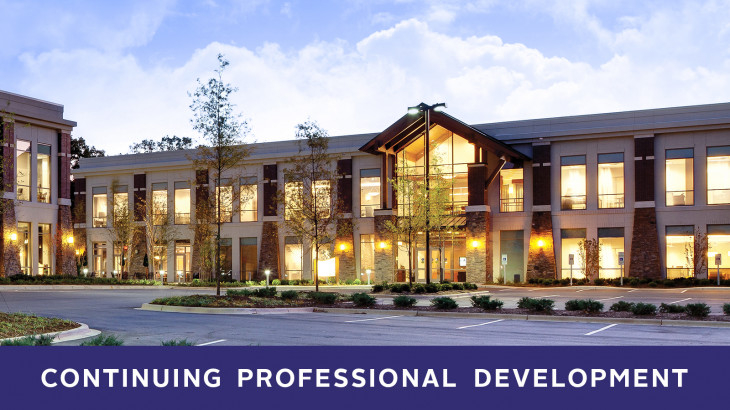Non-Opioid Interventional Pain Management
Jun 4, 2020 Canceled Medicine

Description
To protect the public's health and ensure the well-being of our attendees, speakers, and staff during the COVID-19 pandemic, this in-person training will be postponed tentatively to the Fall of 2020.
Literature has shown that prescribers receive little education on the treatment of pain, resulting in less effective pain treatment with worse outcomes. Attendees will learn the evidence-based analysis of the relative effectiveness of medications and their side effects, recommendations on how to improve treatment of acute and chronic pain, and recognizing substance use/opioid use disorders.
In addition, this course is designed to bolster your current skills in treating acute and chronic pain with alternative non-opioid treatment procedures and techniques. Despite the surprising lack of medical evidence to support the use of opioid medications to treat individuals with arthritis, lower back pain, nerve pain, and migraines, many physicians continue to prescribe opioid medications as the primary treatment for pain. When patients are prescribed opioids, they bear the risk of developing unpleasant side effects including sedation, chronic constipation, addiction, and overdose leading to accidental death.
There are many overlooked and underutilized pain management techniques that offer immediate relief or provide longer-lasting results that can be performed in a primary care setting. Osteopathic medicine treatments, trigger point injections, knee and shoulder injections, occipital nerve blocks, and sphenopalatine ganglion blocks are just a few procedures providers could develop in their practice to ease their patients' pain. Each learner may chose 3 out of the 4 offered pain management techniques to learn with hands-on simulation sessions.
- This skill-based workshop will provide physicians with hands-on training to confidently perform these procedures in their practice by skilled specialists. Utilizing these procedures can:
- Provide immediate and long-lasting pain relief to patients
- Reduce the amount of opioid prescriptions that may increase side effects, addiction, overdose and death
- Increase physician skills and patient satisfaction
- Increase patient volume and billable revenue from office procedures
This program was designed to satisfy, in full, The North Carolina Medical Board's CME requirement for controlled substance prescribers. Per NCAC rules: As of July 1, 2017 all physicians (other than residents), physician assistants, nurse practitioners, podiatrists, and dentists who prescribe controlled substances must satisfy the controlled-substance prescribing CE requirements as set forth by their licensing boards; requirements vary by discipline and board.
MAHEC engages in evaluation activities to better understand the impact of our programs. By registering for this course, you agree that we may use your personal information in evaluative research regarding this program. Any reports published will be de-identified and reported in aggregate format.
With the Support of:
 |
Target Audience
This program is recommended for physicians, physician assistants, nurse practitioners, and other providers interested in this topic.
Objectives
- Describe the impact of the opioid crisis
- Identify the CDC guidelines for prescribing opioids for acute and chronic pain
- Recognize the signs of abuse or misuse of controlled substances
- Apply learned non-opioid pain management procedures and techniques within their current practice
- Evaluate and determine how providing the procedures can reduce opioid prescriptions, addiction, and risk of harm
- Integrate the knowledge and procedures into developing greater expertise in the treatment of pain
Faculty
- Susan Alexander, MD, FAAFP
- Mike Coladonato, MD
- Blake Fagan, MD
- Katie R. Holland Walker, DO
- Jess K. Knapp, DO, CAQSM
- Kevin A. Metzger, DO